Libing Yang
FIND: Fine-tuning Initial Noise Distribution with Policy Optimization for Diffusion Models
Jul 28, 2024
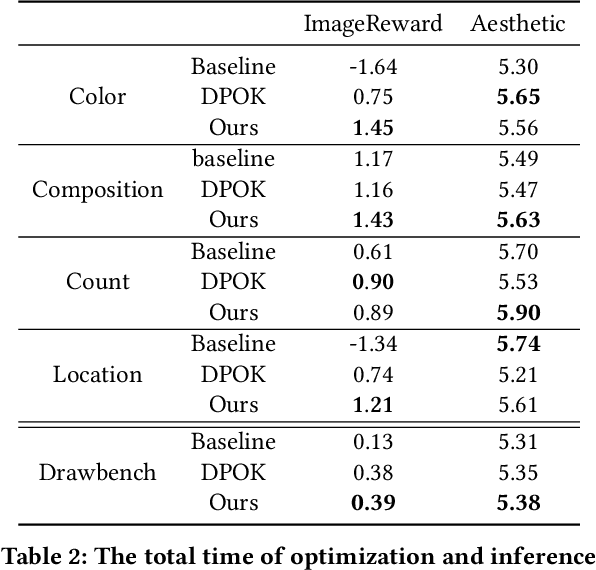
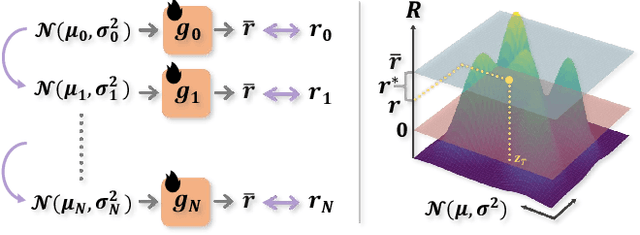

Abstract:In recent years, large-scale pre-trained diffusion models have demonstrated their outstanding capabilities in image and video generation tasks. However, existing models tend to produce visual objects commonly found in the training dataset, which diverges from user input prompts. The underlying reason behind the inaccurate generated results lies in the model's difficulty in sampling from specific intervals of the initial noise distribution corresponding to the prompt. Moreover, it is challenging to directly optimize the initial distribution, given that the diffusion process involves multiple denoising steps. In this paper, we introduce a Fine-tuning Initial Noise Distribution (FIND) framework with policy optimization, which unleashes the powerful potential of pre-trained diffusion networks by directly optimizing the initial distribution to align the generated contents with user-input prompts. To this end, we first reformulate the diffusion denoising procedure as a one-step Markov decision process and employ policy optimization to directly optimize the initial distribution. In addition, a dynamic reward calibration module is proposed to ensure training stability during optimization. Furthermore, we introduce a ratio clipping algorithm to utilize historical data for network training and prevent the optimized distribution from deviating too far from the original policy to restrain excessive optimization magnitudes. Extensive experiments demonstrate the effectiveness of our method in both text-to-image and text-to-video tasks, surpassing SOTA methods in achieving consistency between prompts and the generated content. Our method achieves 10 times faster than the SOTA approach. Our homepage is available at \url{https://github.com/vpx-ecnu/FIND-website}.
ClothPPO: A Proximal Policy Optimization Enhancing Framework for Robotic Cloth Manipulation with Observation-Aligned Action Spaces
May 05, 2024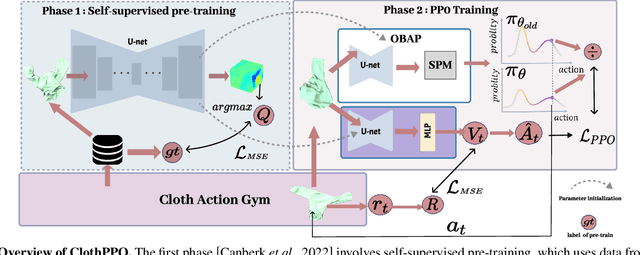

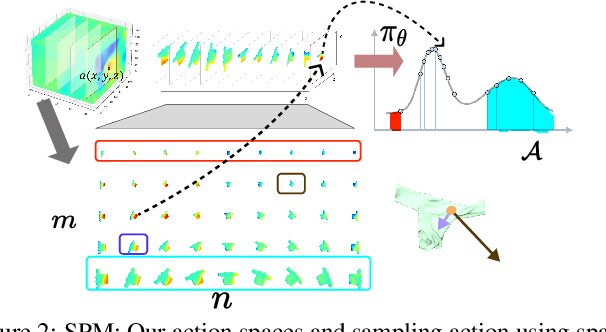
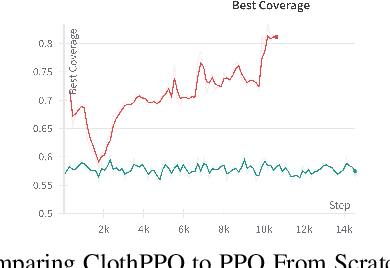
Abstract:Vision-based robotic cloth unfolding has made great progress recently. However, prior works predominantly rely on value learning and have not fully explored policy-based techniques. Recently, the success of reinforcement learning on the large language model has shown that the policy gradient algorithm can enhance policy with huge action space. In this paper, we introduce ClothPPO, a framework that employs a policy gradient algorithm based on actor-critic architecture to enhance a pre-trained model with huge 10^6 action spaces aligned with observation in the task of unfolding clothes. To this end, we redefine the cloth manipulation problem as a partially observable Markov decision process. A supervised pre-training stage is employed to train a baseline model of our policy. In the second stage, the Proximal Policy Optimization (PPO) is utilized to guide the supervised model within the observation-aligned action space. By optimizing and updating the strategy, our proposed method increases the garment's surface area for cloth unfolding under the soft-body manipulation task. Experimental results show that our proposed framework can further improve the unfolding performance of other state-of-the-art methods.
 Add to Chrome
Add to Chrome Add to Firefox
Add to Firefox Add to Edge
Add to Edge